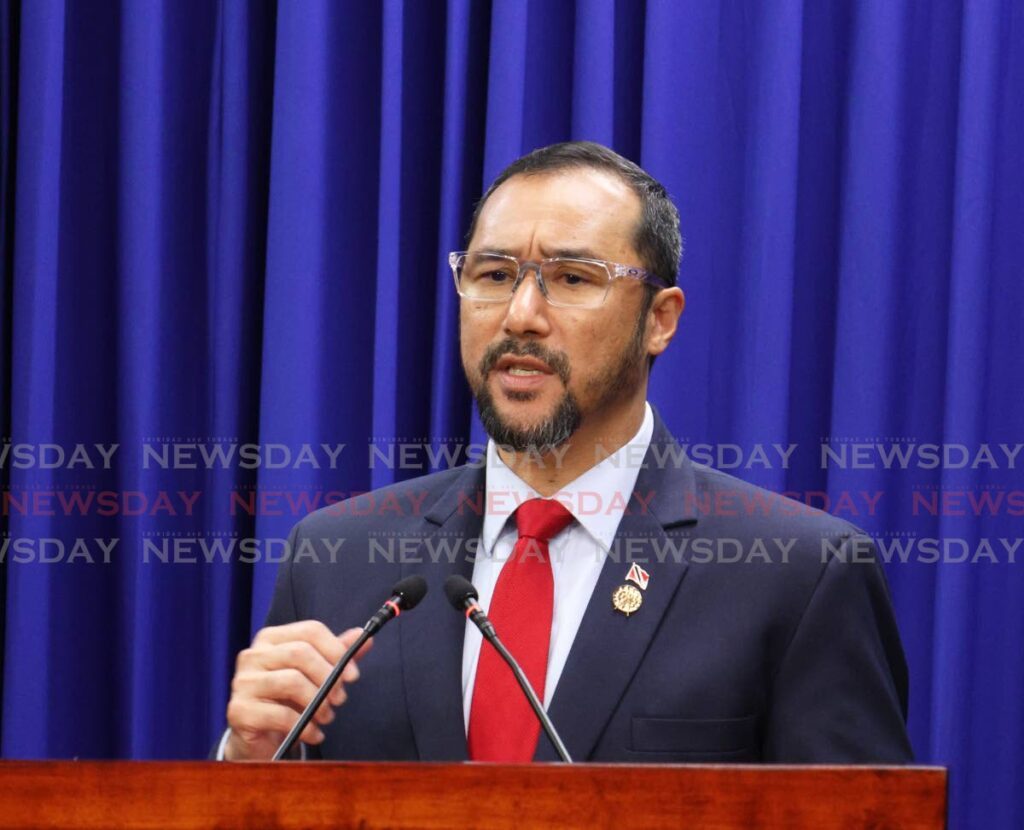Young heartened by discussions with US officials on tariffs

PRIME Minister Stuart Young says he is heartened by preliminary discussions held between Trade and Industry Minister Paula Gopee-Scoon and US government officials with respect to the recent imposition of reciprocal tariffs on 180 countries, including TT, by US President Donald Trump on April 2.
He made this comment to the media after filing his nomination papers at Belmont Secondary School on April 4.
Young said the Trade and Industry Ministry issued a statement about the meeting Gopee-Scoon held with officials at the US Embassy on April 3.
He added certain assessments were made on some of TT's exports.
Young, who is also Energy Minister, was pleased that petroleum and LNG will not attract tariffs from the US.
"As I said this is a preliminary assessment we are still engaged. Yesterday was the first meeting."
Young added, "I am not directly involved myself as yet."
He said the Trade and Industry Ministry will continue to do preliminary work with the US Embassy with respect to the ten per cent reciprocal tariff on TT.
Young hinted, "Then we have other means that we are utilising to find out how these (tariffs) may affect Trinidad and Tobago."
He did not elaborate. At a post-Cabinet news conference at Whitehall on April 2, Young said the tariffs imposed by the US will be raised by Caricom leaders when they meet on April 11.
In a statement on April 4, the Caricom Private Sector Organization (CPSO) said its technical team met internally about the April 2 tariffs, announced by Trump.
The CPSO focused on a ten per cent tariff which would affect many Caricom countries.
"This sweeping tariff impacts several Caribbean countries including St. Lucia, the Dominican Republic, TT, the Bahamas, Grenada, St Kitts and Nevis, Guyana, Haiti, Sint Maarten, Suriname, Belize, British Virgin Islands, Barbados, Cayman, Curacao, Bermuda, Turks and Caicos, Aruba, St Vincent, Montserrat, Guadeloupe, Martinique, Dominica, Anguilla, and Antigua and Barbuda. Guyana faces a higher ‘reciprocal’ tariff of 38 per cent, on Guyana."
The CPSO said its CEO Dr Patrick Antoine acknowledged on April 3, the tariffs would impact several Caricom economies.
He said a credible analysis needs to be done before there is a comprehensive response to the tariffs.
"Several dimensions have now become important. The measures will have both direct and indirect impacts on Caricom economies, beginning with exports, but rapidly on imports as well."
Antoine said, "In the case of imports, some of which are routed through the US to fulfill regional markets, the impact of the tariffs will be felt through higher prices – in a fairly rapid manner. But the impacts will also be felt sector-wide, agriculture, tourism, manufacturing etc."
He added, "There will also be an impact on US consumers and the US economy, and this will have very negative implications on the region’s trade in services, particularly tourism."
Antoine said the CPSO is committed to working alongside the Caricom Secretariat and other regional and international institutions "to leverage the best resources to meet the challenges posed by the shift in economic and trade philosophy, by Caricom's most significant trading partner (the US)."

Comments
"Young heartened by discussions with US officials on tariffs"